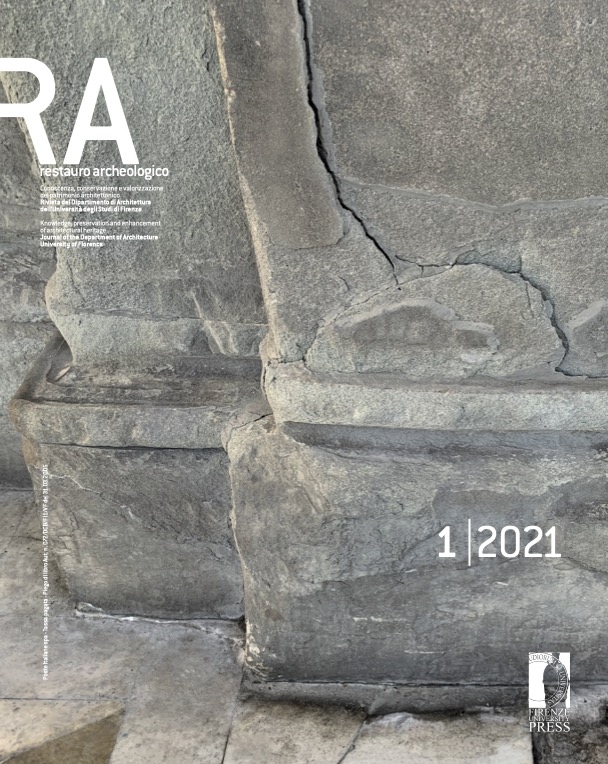Published 2021-12-22
Keywords
- Archaeological park,
- roman ruins,
- accessibility,
- ND test,
- decay
- restoration ...More
How to Cite
Abstract
Archaeological sites in urban centres represent tangible historical evidence, but they can also be a real cut in the heart of cities. They are often undervalued, and their survival is threatened by the stratifications with which they should coexist for a mutual valorisation. An emblematic case is the Catania Roman amphitheatre, one of the most representative Sicilian examples of hypogeal monumental archaeology. Its remains are located below the urban fabric of the 18th and 19th cent., in a precarious state of preservation and unsolved integration with the city. The paper presents the results of a cognitive process useful to provide the basis for a conservation and restoration plan. After a specific archival survey about all the scientific studies carried out so far, the research has made photogrammetric and constructive surveys to identify the main causes of decay and to propose a design solution.


